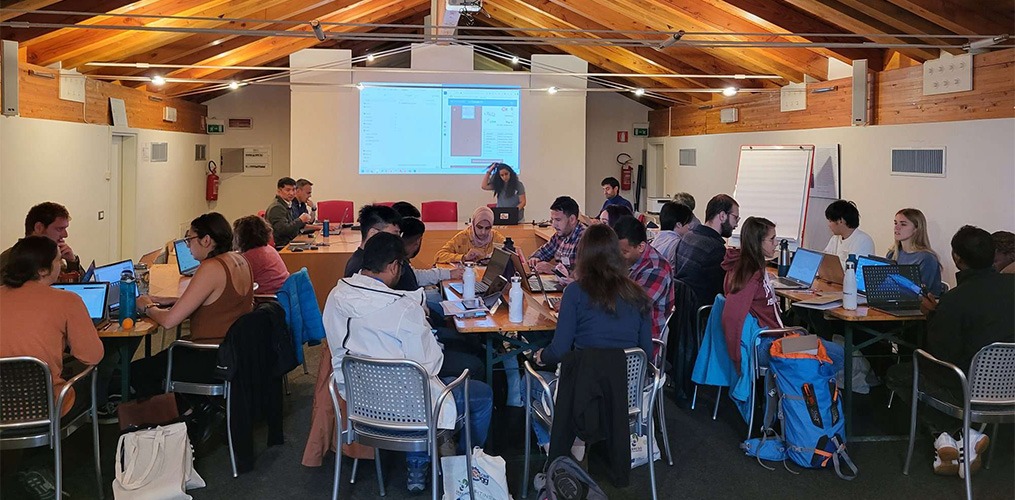
From 19 to 23 June in Valsavarenche, Italy, scientists, researchers, and students from various disciplines are attending lectures, workshops, and fieldwork sessions at the Gran Paradiso Summer School. This year, the school’s theme is “Fundamental Processes in Earth System Dynamics – The Future of Critical Zone”.
Hosted at the Gran Paradiso National Park, the school aims to foster a deeper understanding of Earth Sciences, with lecturers from Europe, the United States, Japan, and Taiwan. Thanks to its interdisciplinary approach, it provides a platform for geologists, ecologists, hydrologists, and scientists working in these fields to collaborate and share their expertise. Our CEO, Christos Arvanitidis, is participating in the Summer School programme, presenting LifeWatch ERIC’s activities in the Special Seminars session.
Participants also have the opportunity to discuss multidisciplinary and cross-domain interactions, which are crucial for developing comprehensive strategies. These conversations aim to bridge the gap between scientific research and practical applications, ensuring that the knowledge gained can inform future actions and conservation efforts.
The international Gran Paradiso Summer School is organised by Timothy White (Pennsylvania State University, USA) and Antonello Provenzale (CNR IGG, Pisa, Italy, and Coordinator of the LifeWatch Italy Joint Research Unit) in the framework of the Belmont Forum ABRESO project and of the Italian project coordinating a network of national nodes from 22 Research Infrastructures (ITINERIS), in collaboration with the Gran Paradiso National Park, LifeWatch ERIC, and eLTER RI. To learn more about the school, please visit this page: https://www.thematic-school.cnr.it/about-the-summer-school/.